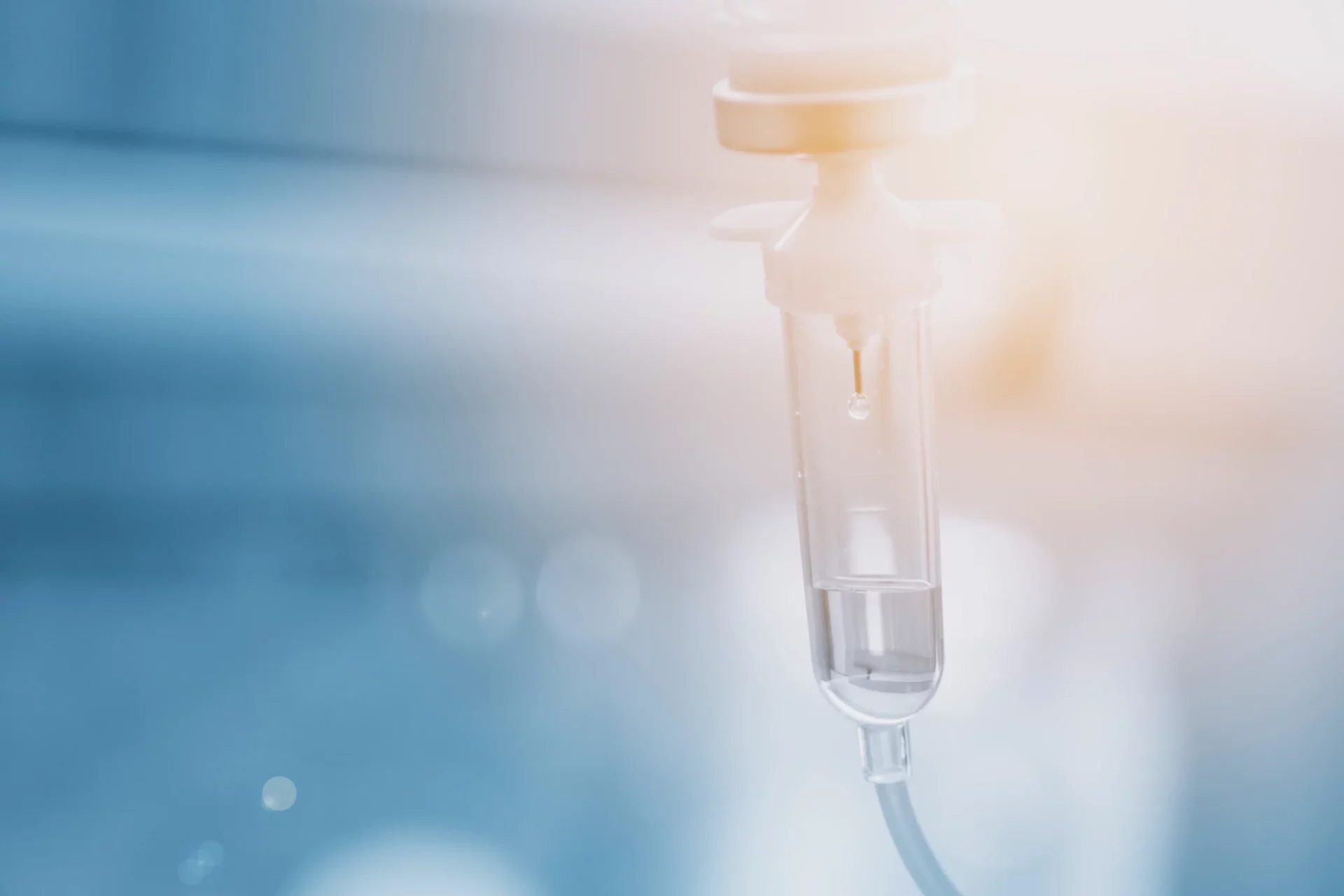
Revival
A masterful blend of vitamins and antioxidants that may help support refreshed energy and balance.
View DripDenver, known as the “Mile High City,” sits at an elevation of 5,280 feet above sea level. While this makes the city famous for its stunning views and outdoor activities, it also means visitors are breathing thinner air than they’re used to at lower elevations. Oxygen levels decrease as altitude rises, and in Denver, the air contains roughly 17% less oxygen compared to sea level. For people unaccustomed to this change, the reduced oxygen can have a noticeable effect on their energy levels, breathing, and overall health. Denver is unique because it combines a high elevation with a bustling urban environment. Many travelers fly in from cities like Los Angeles, Chicago, or New York, which sit near sea level. This sudden jump in altitude gives their body little time to adapt, making altitude sickness a common concern. If you’re experiencing altitude sickness in Denver, understanding the symptoms and solutions can help you recover quickly and enjoy your stay.
We bring top-tier IV therapy and wellness treatments directly to your doorstep, so you can relax and rejuvenate in the comfort of your own space.
Our team of certified RNs ensures every treatment is handled with precision and care.
Our services are designed to integrate seamlessly into your busy schedule, providing wellness solutions when and where you need them most.

Altitude sickness—also called acute mountain sickness—happens when your body struggles to adjust to lower oxygen levels at higher altitudes. At elevations above 5,000 feet, your lungs and heart must work harder to circulate oxygen throughout your body. In Denver, this adjustment period is often mild, but it can become more severe when traveling to mountain towns nearby, such as Breckenridge, Vail, or Aspen, which sit at 8,000 to 10,000 feet.
When the body doesn’t adapt quickly enough, symptoms appear. For most people, these symptoms begin within 6 to 24 hours of arriving in Denver. While altitude sickness usually improves as your body adjusts, it can be disruptive, uncomfortable, and even dangerous if ignored.
Altitude sickness can feel different for each person, but the most common symptoms include:
For most people, these symptoms are temporary. However, when you’re in Denver for a short trip, a business meeting, or a ski vacation, even mild altitude sickness can put a damper on your plans.
There are a few common myths about Denver’s altitude that are worth clearing up:
Hydration and oxygen balance are key to overcoming altitude sickness. Drinking water is important, but when your body is already dehydrated or low on electrolytes, oral hydration takes much longer to restore balance.
IV therapy offers a faster, more efficient solution. By delivering fluids, electrolytes, and vitamins directly into your bloodstream, your body absorbs them immediately—bypassing the digestive system. This allows for rapid rehydration, relief from nausea, and improved energy levels.
A typical IV therapy treatment for altitude sickness in Denver may include:
Many people feel noticeable relief within 30 to 60 minutes of treatment. This makes IV therapy an ideal solution for travelers who don’t want to lose valuable time in Denver or nearby mountain resorts.
One of the biggest advantages of choosing IV therapy in Denver is convenience. Instead of visiting an urgent care or hospital, mobile IV services bring treatment directly to you—whether you’re in a downtown hotel, a rental property, or even your office. This is especially helpful for travelers who are short on time and need to recover quickly to enjoy their trip.
U.S. Mobile IV specializes in treating altitude sickness in Denver and surrounding areas. We bring medical-grade hydration directly to you so you can rest and recover without leaving your location.
While IV therapy provides fast relief, prevention is always better when possible. Here are a few tips to help your body adjust to Denver’s altitude:
Dehydration is one of the biggest contributors to altitude sickness. Begin drinking more water before your trip, and continue to hydrate consistently while in Denver.
Alcohol acts as a diuretic, meaning it depletes your body of fluids and electrolytes. Drinking alcohol, especially on your first night in Denver, can make symptoms worse.
Avoid intense physical activity during your first 24 hours at Denver elevation. Give your body time to adjust before hiking, skiing, or exercising heavily.
Quality rest allows your body to adjust more effectively to reduced oxygen levels.
If you’re planning to travel beyond Denver to higher-elevation areas like Vail or Breckenridge, consider IV therapy as a preventive step. Restoring hydration and electrolytes before gaining additional altitude helps reduce the chance of severe symptoms.
Although altitude sickness can affect anyone, certain groups may be more prone to experiencing symptoms:
Knowing your risk can help you take steps to prevent issues—or seek IV therapy sooner if symptoms develop.


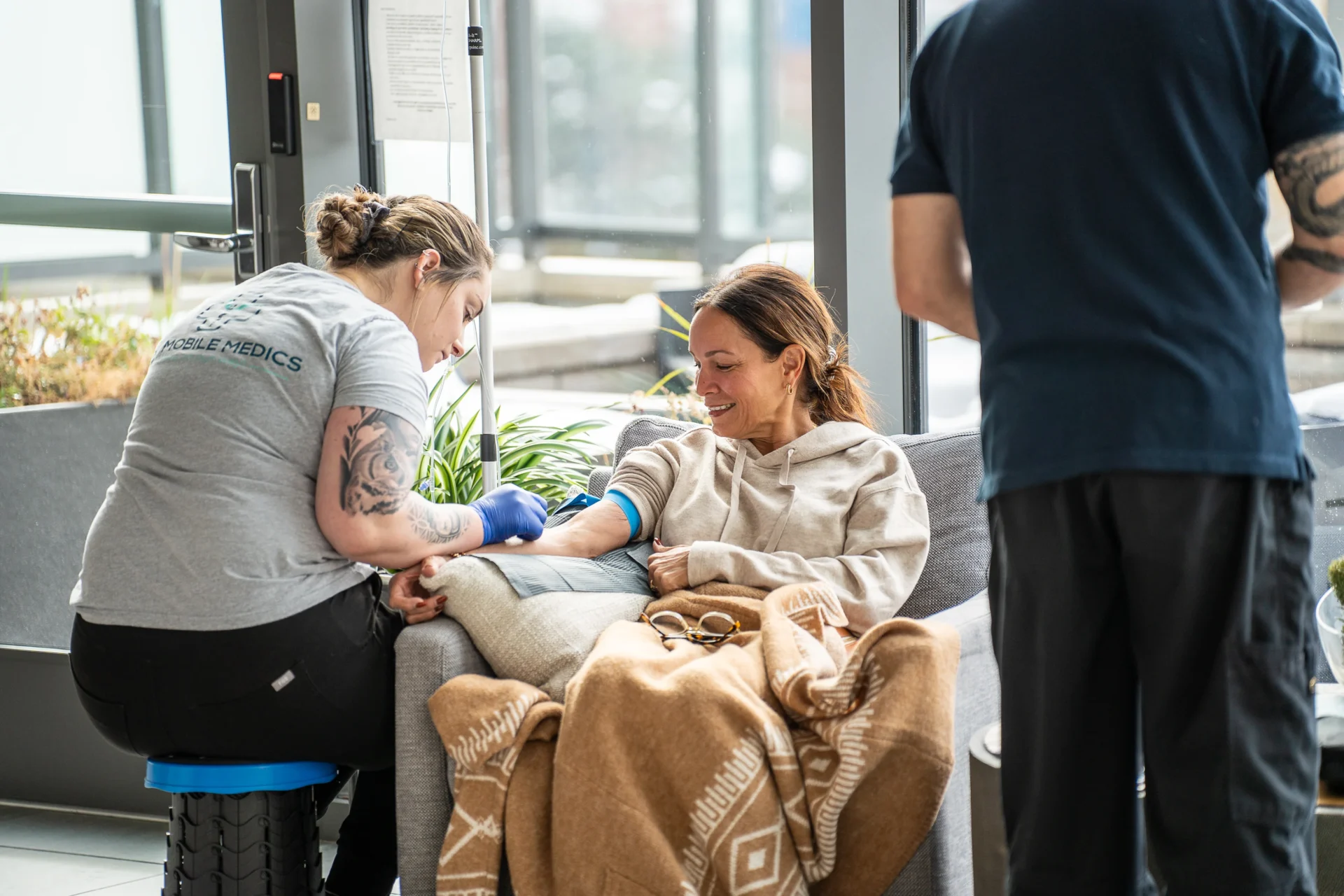
Explore our most popular IV drips, each designed to deliver fast hydration, essential nutrients, and targeted wellness benefits to help you feel your best.

A masterful blend of vitamins and antioxidants that may help support refreshed energy and balance.
View Drip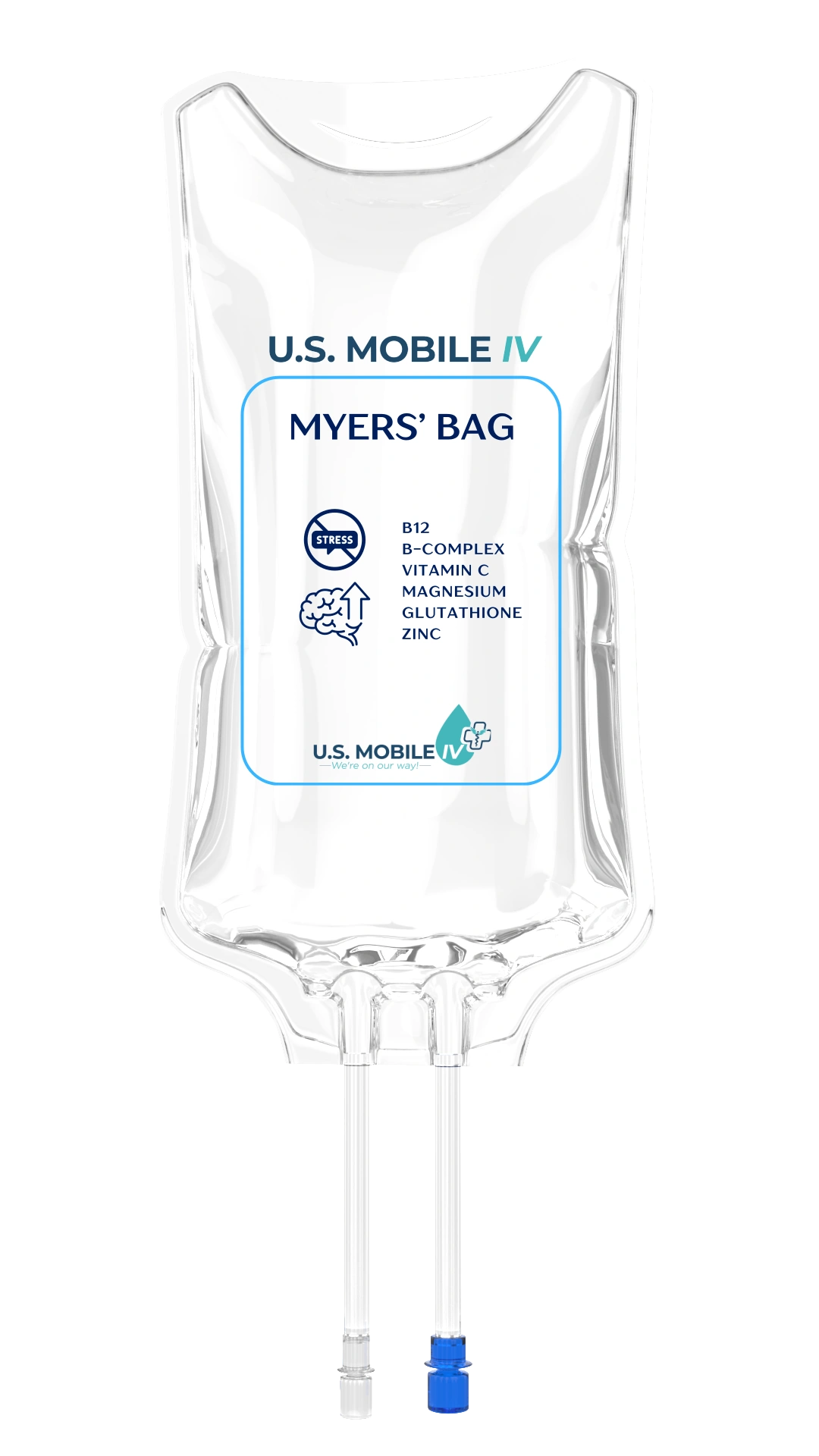
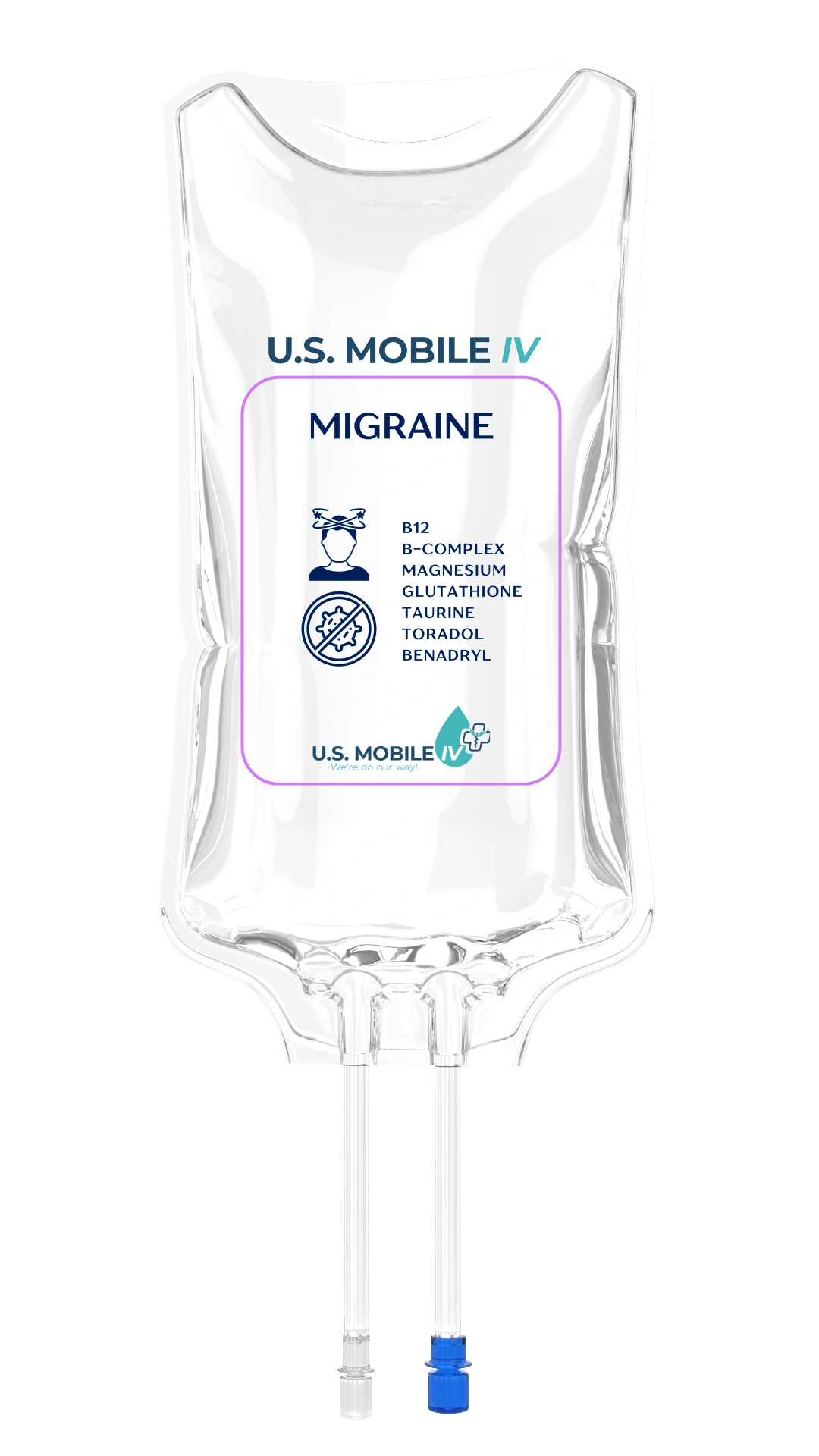
A carefully selected blend of vitamins that may help support comfort and calm during migraine-related discomfort.
View Drip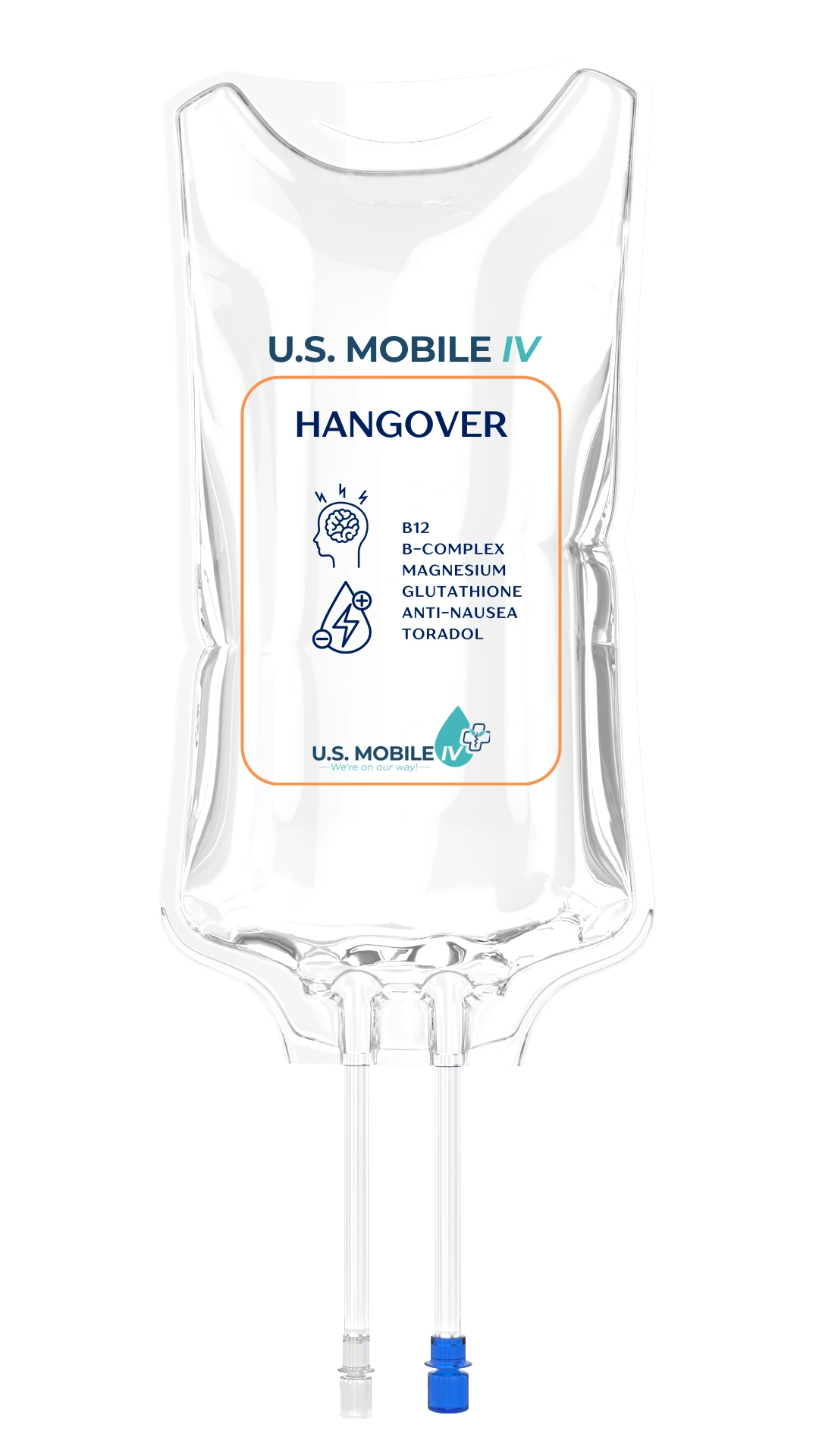
A combination of hydration and vitamins that may help support recovery after a night out.
View Drip